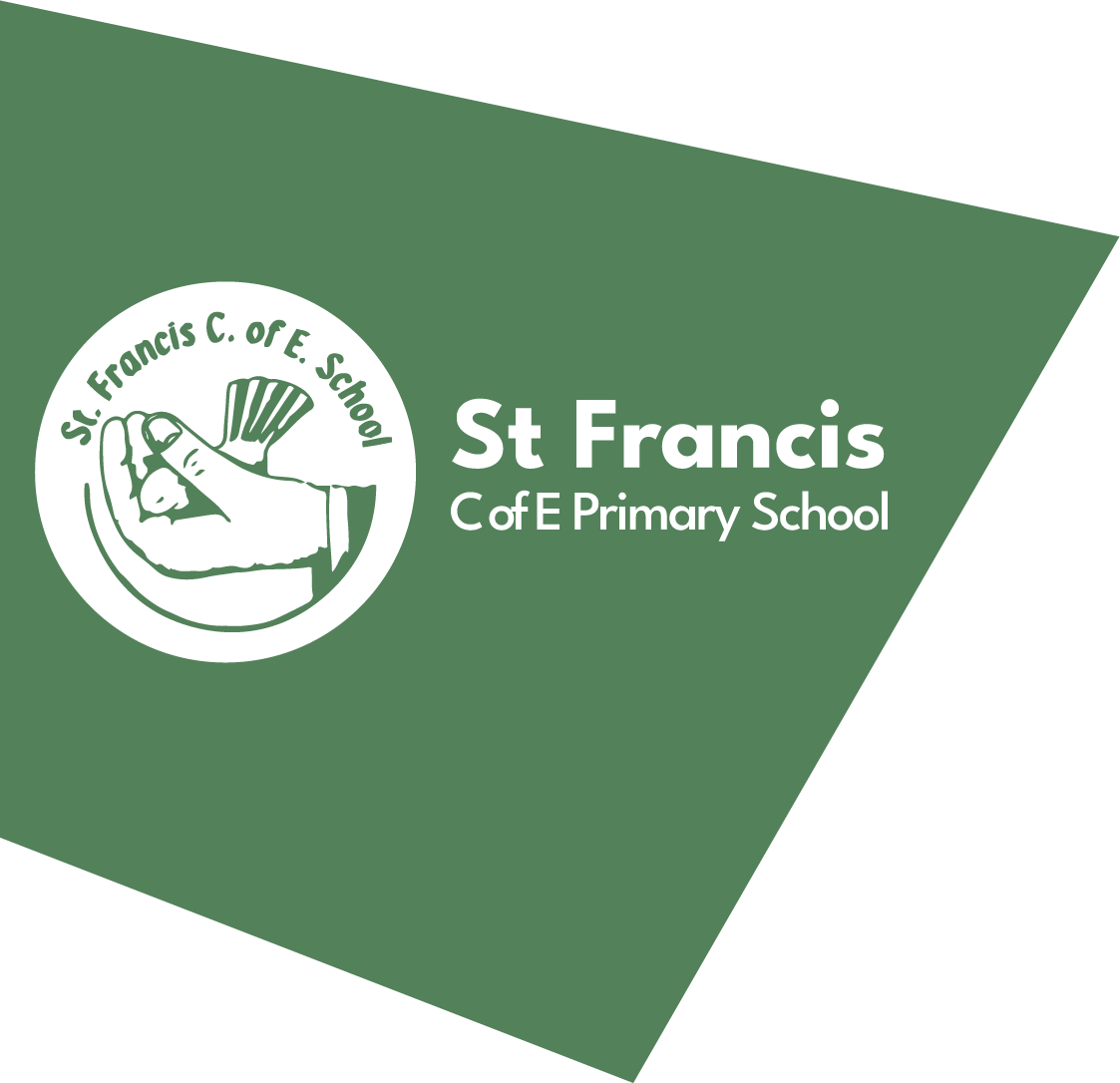
Subject Information
Please click on a subject title below to find out how each subject is taught in each year group.
Art and Design
Collective Worship
At St Francis, school worship forms that part of the curriculum designed to promote and support the spiritual and moral development of children and to give them opportunities to be aware of the presence of God and to explore and develop their own beliefs.
Aims
- To encourage children’s natural sense of wonder and awe in Gods creation and to develop the qualities of curiosity, celebration, mystery and gratitude which are the cornerstones of worship.
- To provide children with experiences which have an individual and personal meaning, but also foster the sense of belonging to a worshipping community.
- Provide learning experience which will enable those children with a Christian commitment to express it.
- Provide a means for all children regardless of faith backgrounds to explore their inner feelings and spiritual experiences.
- Promote a community of positive relationships based on love, care and commitment reflecting the community of the Holy Trinity.
- Promote shared experiences of both joyful and sad occasions.
- Provide stimulating activities based on Biblical knowledge, historical and Christian living in the world today.
- Draw on the life and teachings of Christ as a model for education, recalling that He posed challenging and probing questions and demanded responses.
- Provide children with a variety of worship styles and settings within the traditions and doctrines of the Church of England.
- Follow the pattern of Anglican worship through the seasons of the Anglican calendar, observing Advent, Christmas, Epiphany, Lent, Easter and Pentecost. Observe major festivals and Saint’s Days.
- Invite visitors to lead worship, both clergy and lay people from Anglican and other denominations.
- Encourage pupils to participate in leading worship and so throughout the year, each class will lead a Friday worship session.
Withdrawal of children from Religious Education Section 25 of the 1944 Education Act relates to the right of parents to exercise their rights in relation to their child’s attendance at religious worship or instruction. A parent has the right to withdraw a pupil from attendance at religious worship or instruction at any county or voluntary school. No reason need be given for such a withdrawal. Schools remain responsible for the supervision of pupils so withdrawn. If the school cannot provide suitable alternative instruction, then the parent may provide it elsewhere and the pupil may be released from school for that purpose. It should be noted that when a pupil is released in this way, the arrangements must not interfere with his/her regular education programme and therefore the absence must either be at the start or end of school session.
We will strive hard to meet the needs of those pupils with special educational needs, those with disabilities, those with special gifts and talents, and those learning English as an additional language (EAL), and we take all reasonable steps to achieve this.
Computing
Design Technology
Geography
Global Learning
What is Global Learning?
Global learning can be described as an approach to learning about international development through recognising the importance of linking people’s lives throughout the world. Schools participating in global learning recognise the impact that knowledge and understanding of development can bring to pupils’ learning across the curriculum. Global learning at St Francis can simply be defined as a means of our children learning about the wider world.
Drawing on our definition of global learning (see https://think-global.org.uk/), a global learner is:
• Critical
• Creative
• Self-aware
• Globally aware
• Open-minded
• Inquisitive
• Reflective
• Connected
• Willing to engage with global challenges
• Tolerant of different belief and cultures
• Keen to take action for a better world
Global learning supports the long-term development and success of pupils, by enhancing their critical thinking skills and boosting their relationships with peers.
Incorporating a global element into teaching across the curriculum helps to:
- ensure our children experience a rich and interesting curriculum
- base learning in real-world contexts to enthuse, inspire and engage our children
- raise standards of attainment and achievement
- deliver the requirements of the SMSC curriculum and respond positively to the current focus on British Values
- ensure our children make sense of the world in which they live and to understand their role and responsibility within a global society
- develop an ethos encouraging empathy, fairness and respect.
We have designed our curriculum offer with Global Learning in mind, and all year groups have opportunities to develop their understanding of their place as a citizen in a diverse and exciting world. For more detailed information on our curriculum intent, implementation and impact, please refer to our curriculum page.
History
Maths
Modern Foreign Language
Music
Personal, Social, Health & Economic
Physical Education
Reading
Religious Education
Science
Writing
